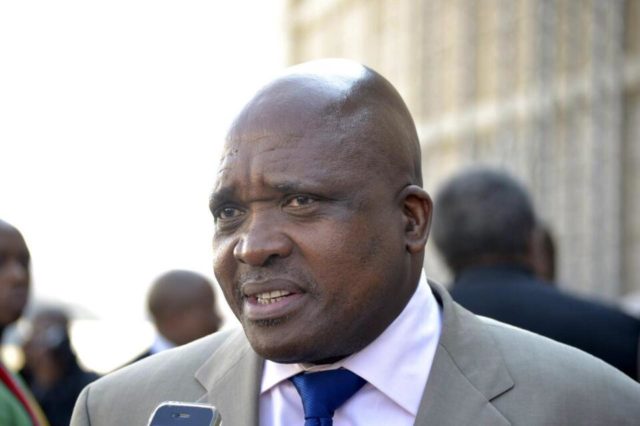South Africa has discarded about 5% of Covid-19 vaccine doses in both the public and private sector as at March 13 because they are not suitable to be administered.
SOUTH Africa has discarded about 5% of Covid-19 vaccine doses in both the public and private sector as at March 13 because they are not suitable to be administered.
The cost of the vaccines that have been wasted is estimated at R230 million and the expired stock is standing at R70m.
This was revealed by Health Minister Joe Phaahla when he was responding to parliamentary questions form IFP MP Magdalena Duduzile Hlengwa and DA MP Haseena Ismail.
Hlengwa and Ismail enquired about the number of Covid-19 doses that were wasted to date and the cost of expired medication and wasted vaccines, as well as a plan to manage the supply of vaccine doses to match the demand.
In his response, Phaahla said the estimated losses were calculated using the number of doses distributed less than the current stock on hand and doses administered.
“The estimated losses based on the stock on hand data available is R230,570,550 in total, which accounts for 4.5% of the value of all doses distributed.
“The 4.5% estimated wastage is within the WHO indicative wastage of 10%,” he said.
Phaahla also said the calculation of wastage per province was difficult to estimate because of non-adherence to reporting requirements at vaccination sites and movement of doses across provincial boundaries especially in the private sector.
Phaahla said vaccine wastage occurred in all vaccination programmes and was influenced by various factors.
“Wastage in unopened vaccine vials is considered avoidable. The programme should aim to prevent this type of wastage, often due to poor stock control practices, cold chain, or vaccine handling processes,” he said.
The minister said wastage in opened vaccine vials usually occurred at the point of service delivery level and was considered unavoidable and somewhat acceptable if the wastage occurred while preventing missed immunisation opportunities to increase immunisation coverage.
“Unavoidable wastage can never be eliminated but could be minimised,” he said.
Phaahla explained that no vaccines stored at the central warehouses had exceeded the manufacturers’ expiry date when stored at minus 70ºC for Pfizer and minus 20ºC for J&J.
He said when vaccines were thawed for use and stored at 2-8 ºC prior to administration, the manufacturers’ shelf-life was reduced to 31 days and 135 days for Pfizer and J&J respectively.
“When the allowed storage period at fridge temperature exceeds this period, it is regarded as avoidable wastage in unopened vials,” he said.
Phaahla also said the WHO provided indicative wastage rates for five or six dose vial presentations at 10%, including avoidable and unavoidable wastage.
“Based on the information available as of 13 March 2022, the current total wastage is estimated to be 4.9% of doses delivered,” he said.
He said the wasted doses, including expired stock, consisted of 138,804 doses in the private sector and 341,583 doses in the public sector.
Phaahla also said the value of expired doses stored at the central warehouse was nil.
“Estimated value of discarded doses in the private sector is R20,820,600. This cost is for the account of the private sector service provider,” he said. “Estimated value of discarded doses in the public sector is R51,237,450,” the minister added.
Phaahla said currently the overall vaccine wastage rate was monitored.
“Any intervention to reduce vaccine wastage should not result in lower immunisation coverage or contribute to missed opportunities for vaccination. Therefore, in-depth vaccine wastage evaluation is recommended at facilities where the wastage exceeds the indicative wastage rate.
“These in-depth wastage evaluations provide insight into the contributing factors of wastage, whether avoidable or unavoidable.”
He also said wastage-specific interventions could then be designed to address the practices that result in vaccine wastage.
The minister also stated that vaccine wastage should always be weighed against the benefits of vaccination, which include a reduction in healthcare costs and maintaining high levels of vaccination coverage.
“Any measure or strategy to reduce vaccine wastage should not compromise immunisation coverage.”
– POLITICAL BUREAU








